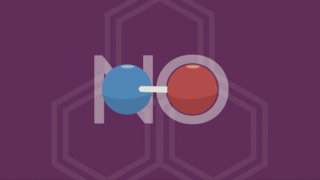Health
How Nitric Oxide Helps Mental Health and COVID-19 Response
How does Nitric Oxide improve mood and enhance immunity?
Posted December 11, 2020

Though essential for mental health, Nitric Oxide is often a forgotten piece of the puzzle. Nitric Oxide (NO) is an essential metabolic and vascular regulator that is naturally made in the body. It is an unconventional neurotransmitter and intracellular messenger in the brain that increases blood flow and decreases blood pressure (Kapil, V. et al. 2010).
Supporting NO also improves vascular function and endothelial function, which may also provide protective benefits against the effects of COVID-19 since the SARS-CoV-2 virus attacks endothelial function and this becomes a major cause of mortality. Overall, NO has a vital and positive effect on general health, mental health, the aging process, and even helps to repair skin damage.
We typically think of NO for its role in cardiovascular health, diabetes, and erectile dysfunction, yet it is also essential for mental health, cognitive function, and prevention of vascular dementia, and Alzheimer’s. A lack of adequate NO production increases the risk of depression and the presence of NO positively affects our mood.
Depression and NO
Depression is linked to increased expression of two enzymes that make nitric oxide; neuronal nitric oxide synthase and inducible nitric oxide synthase. A variant of the gene that makes these synthases increases depression susceptibility (Aprehart-Treichel,2011). Decreased NO production reduces blood flow to the brain and increases inflammation and oxidative stress which contributes to cognitive decline.
Nitric Oxide helps reduce anxiety and depression in part because it reduces inflammation and oxidative stress. It also restores circulation and supports healthy blood pressure, which is often elevated in people under stress and with chronic PTSD, thus becoming another risk factor for vascular dementia.
Age and NO
Nitric oxide function diminishes as we age and leads to what is called functional aging. Normally, by the age of 40, our arginine/NOS enzyme system functions at around 50%. By the time we are 60, NOS is functioning at around 15%.

How to Enhance Nitric Oxide
Among the causes of diminished nitric oxide production are the SAD diet, (Standard American Diet) made up of refined flours and sugars and hydrogenated fats, sedentism, stress, medications like antibiotics, antidepressants, birth control pills, NSAIDs, PPIs, and exposure to pollution, toxins, and heavy metals. By improving these lifestyle factors along with supplementation and foods that enrich nitric oxide, we can reverse and slow depletion.
In my clinical practice and teaching institute, I focus on treating mental health, cognitive performance, help people taper psychotropic medications, and prevent diabetes and dementia.
Want to learn more? I address Nitric Oxide in my certification course, Nutrition and Integrative Medicine for Diabetes, Cognitive Decline, and Alzheimer’s Disease.
References
Aprehart-Treichel, J. (2011). Nitric Oxide Gene Variant May Affect Depression Risk. Psychiatric News. https://doi.org/10.1176/pn.46.9.psychnews_46_9_20_1.
Kapil, V., et al. (2010). Inorganic Nitrate Supplementation Lowers Blood Pressure in Humans:
Role for Nitrite-Derived NO Hypertension, AHA Journals, 56 (2), 274-281. https://www.ahajournals.org/journal/hyp.
Science of Nitric Oxide. Berkeley Life. https://www.berkeleylife.com/science-of-nitric-oxide-2/.
Shirley, B (2020). Nitric Oxide and Mental Health. Berkeley Life Professional.


